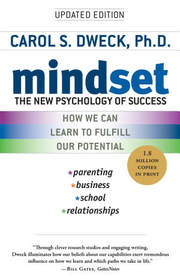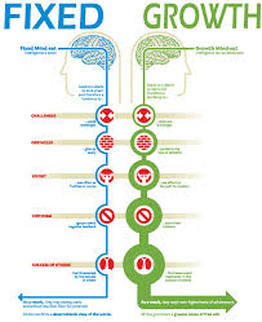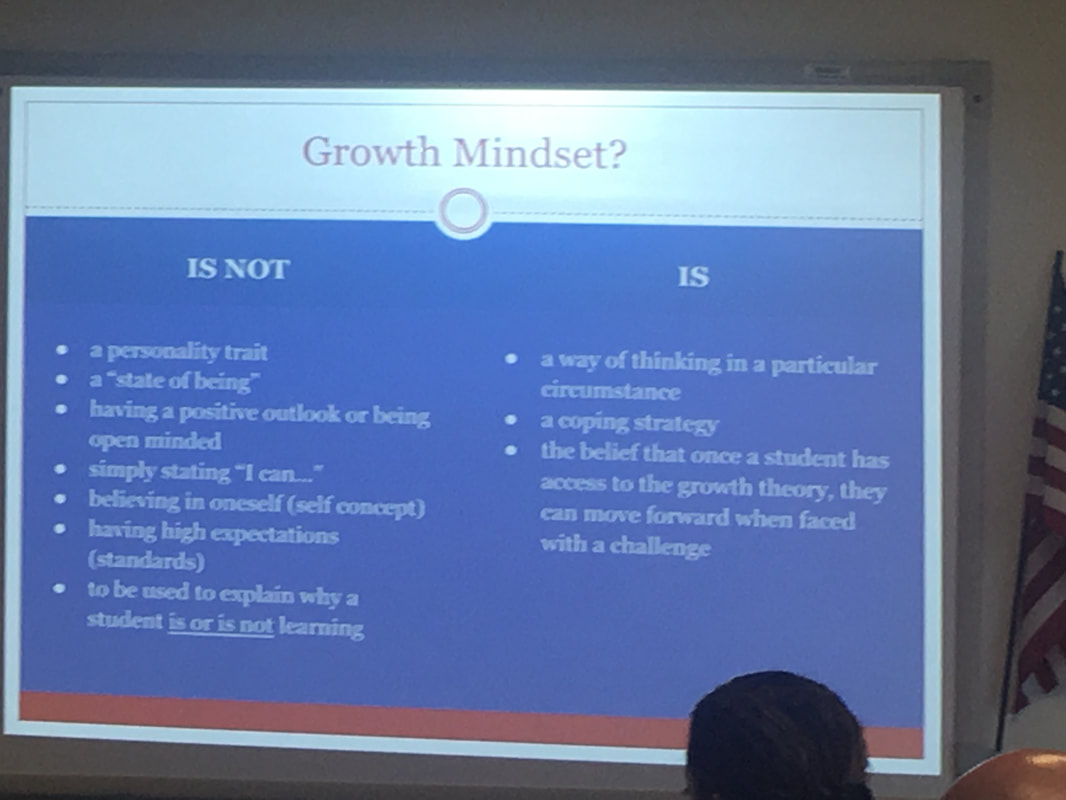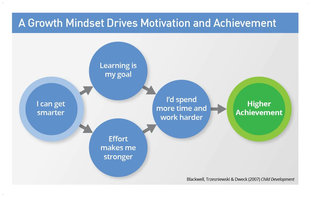 Once you understand growth mindset, you can apply it across many situations:
As individuals, we took the mindset survey. One half of the room tried to answer with a fixed mindset, while the other half answered with a growth mindset. Some of the survey statements were:
You must constantly hear your fixed and growth mindset voice. "If a child believes that failure is a result of not being smart enough or not having enough ability, they often avoid challenges or give up easily." "If a child believes that failure is a reason to increase the amount of effort needed for success, they often embrace challenges and succeed." To hear that voice, we heard "Sophia" and "Tristan" in Interviews with Lisa Blackwell. We heard Sophia talk about limits on her learning and not being "good" at something. She also talked about her perception of what a smart person looks like. Tristan was a sharp contrast. "Trying makes me smart." "I never put myself down."Participating and doing my best makes me feel smart." His growth mindset was clear! Can we intentionally develop a growth mindset in students? Repeated studies of all ages of children across all socio-economic status and all levels of intelligence show that "praise for effort has dramatically different results for kids than does praise for intelligence." Carol Dweck reminds us that "Emphasizing effort gives a child a variable that they can control, and they come to see themselves as in control of their success. Emphasizing natural intelligence takes it out of the child's control, and it provides no good recipe for responding to a failure." The Effective Effort Rubric assesses the learning process and the effective effort that a learner applies. Learning to hear your fixed, mixed, and growth mindset voice is important when addressing the following seven needs of all learners.
Our work as a district will be ongoing. The parallel tracks we will follow will focus on professional development, classroom materials (videos), a year-long documentary, and teacher resources. We will continue to model life-long learning as we improve the experience of school for our students. We are also lucky to have Eduardo Briceno for our opening day Keynote in September! As a leader at Mindset Works, which helps people develop as motivated and effective learners through training and resources to foster growth mindset beliefs and behaviors, he will push our learning to the next level. #GrowthMindset 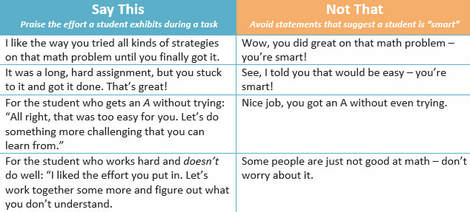 "Praise" taken from: http://www.lindaboverman.com/inclusion-corner-encouraging-our-students-to-have-a-growth-mindset/
0 Comments
Leave a Reply. |
Categories
All
Archives
October 2023
Whittney Smith, Ed.D.Dr. Smith is the Principal of Mineola High School in Garden City Park, NY. He is also an Adjunct Professor in the Ruth Ammon School of Education at Adelphi University. |
